Horacio Cardo
(1944 - 2018)
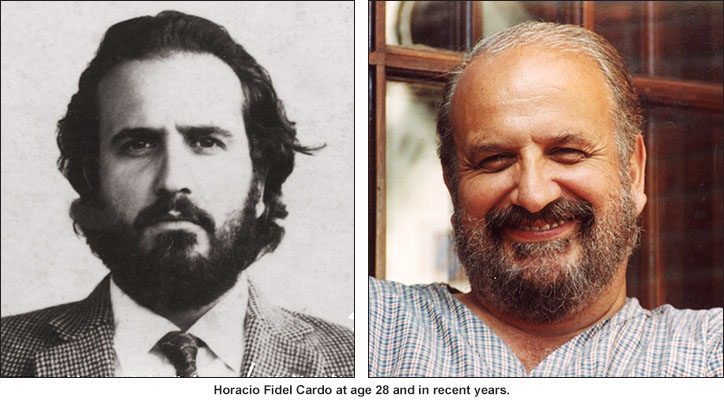 Whenever I mentioned the name Cardo to other editorial illustrators the reaction was always a variation on "Wow!" He was an artist's artist, in the sense that you really had to ply the trade to fully appreciate his unique mastery. I met him in the 80s when we were both doing work for the New York Times and he began contributing to the weekly editorial illustration service Inx. One of the pleasures of the group's weekly meetings was a brunch where we commiserated, complained, and cracked jokes over scrambled eggs. He would often recall those noisy affairs affectionately in later years.
Whenever I mentioned the name Cardo to other editorial illustrators the reaction was always a variation on "Wow!" He was an artist's artist, in the sense that you really had to ply the trade to fully appreciate his unique mastery. I met him in the 80s when we were both doing work for the New York Times and he began contributing to the weekly editorial illustration service Inx. One of the pleasures of the group's weekly meetings was a brunch where we commiserated, complained, and cracked jokes over scrambled eggs. He would often recall those noisy affairs affectionately in later years.
I understand he was an estimable athlete in his younger days in Argentina, and I remember him as a great bear of a man. He had a courtly manner combined with considerable warmth and an eager laugh. Underlying the avuncular exterior was a coiled intensity, but even an angry rant against the government authorities in Buenos Aires or Sigmund Freud was leavened with a sense of the absurd.
As with any artist his influences are traceable, but he synthesized them into a style that was genuinely his own. His unmistakable brush and ink work (he scoffed at using a pen) always incorporated fine art elements to create complex textures, and his natural restlessness was a good fit for the Digital Age. In the 90s he was one of the first artists I knew who grappled with PhotoShop to create images that weren't slaves to the technology. He approached it as an exciting new tool box, enthused as new versions were released to provide him more layers to play with. The program didn't dictate what he produced –– he absorbed it and found ways to deepen his art.
What I've always admired about Cardo's work is how he combined so many elements into a unified whole. His images were always about ideas, but they were at the same time intensely expressionistic. Though fundementally serious, they were often bitterly funny and always beautifully crafted. For all the phantasmagoric, sometimes tortured, imagery and the mutitudinous layering, the integrity of the concept was never lost. At times he employed the standard symbols of political cartooning, but his versions always transcended cliché.
Here's a sampling of the work Cardo created for Inx when Peter Kuper and I were both art directing.
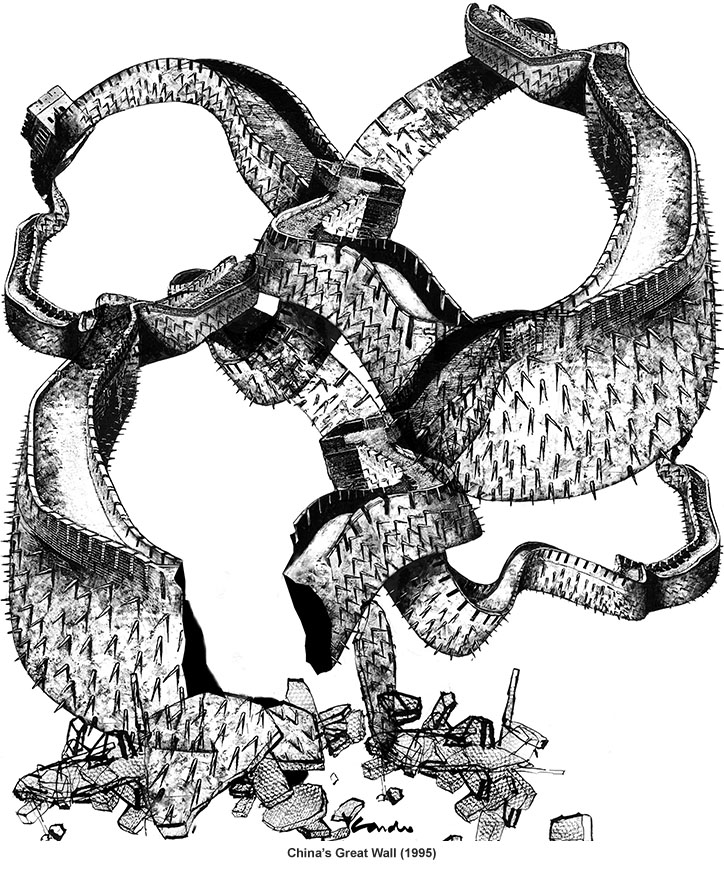
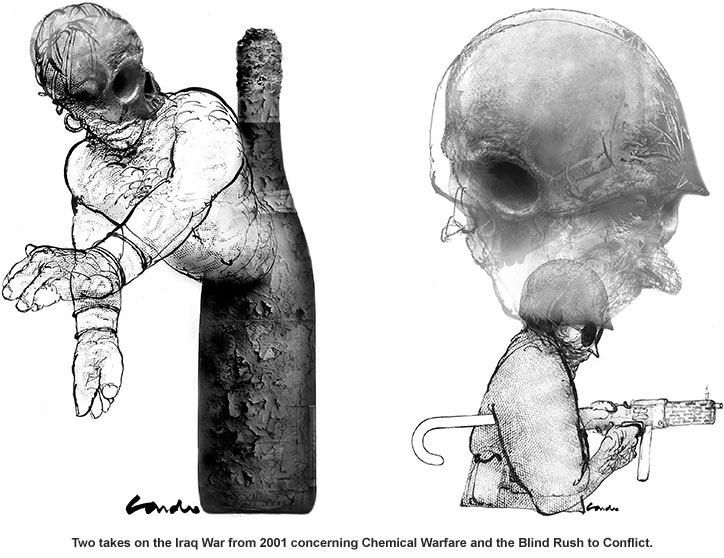

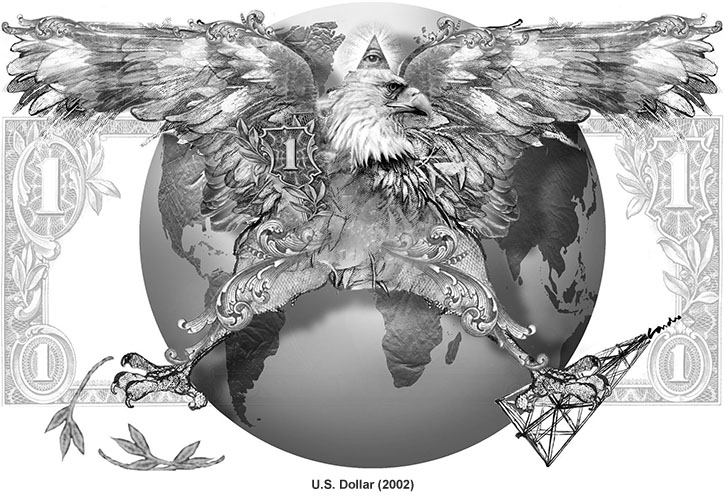
Cardo's signal achievement in the United Sates was his extraordinary run of illustrations for the New York Times Op-ed page in the 80s and 90s championed by art director Jerelle Kraus. As Brad Holland and David Suter had done earlier, Cardo's work came to define the page. Here are a couple of examples along with an image rejected by skittish editors, highlighted in Kraus' fascinating book about the page's contents and discontents, All the Art That's Fit to Print (And Some That Wasn't).
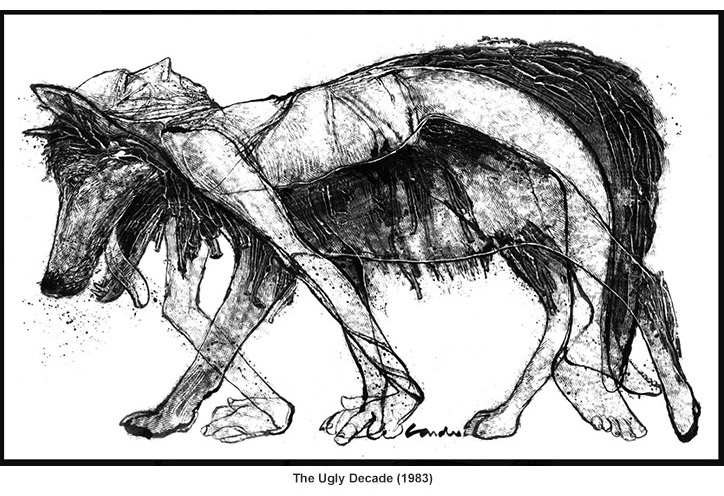
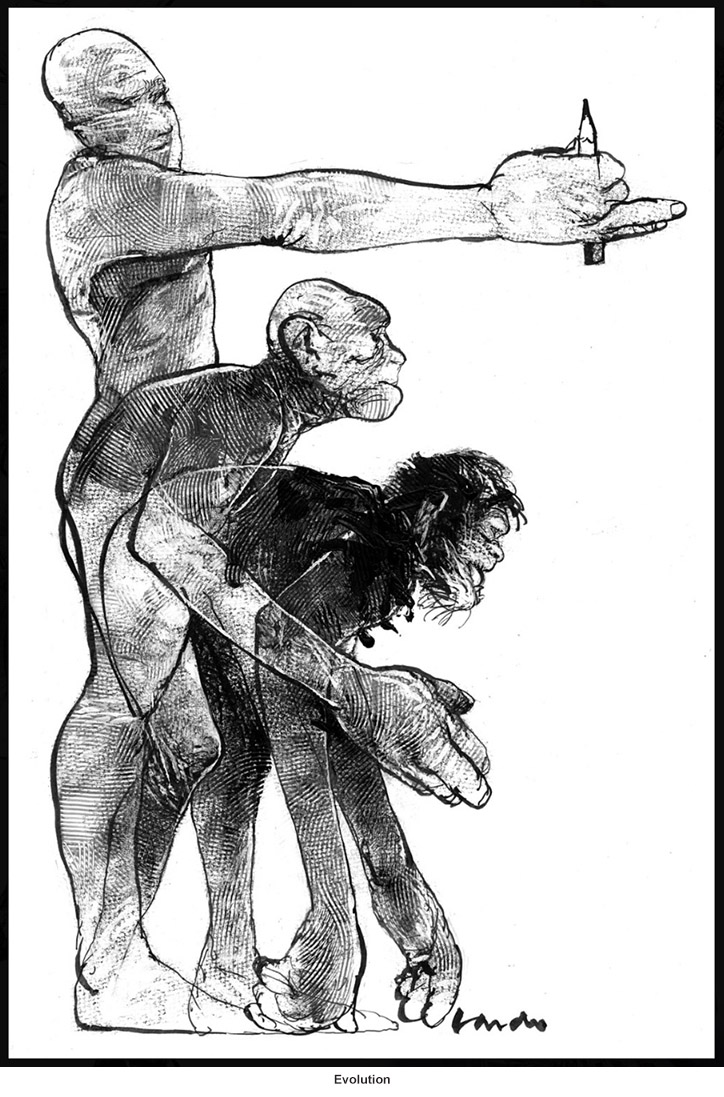
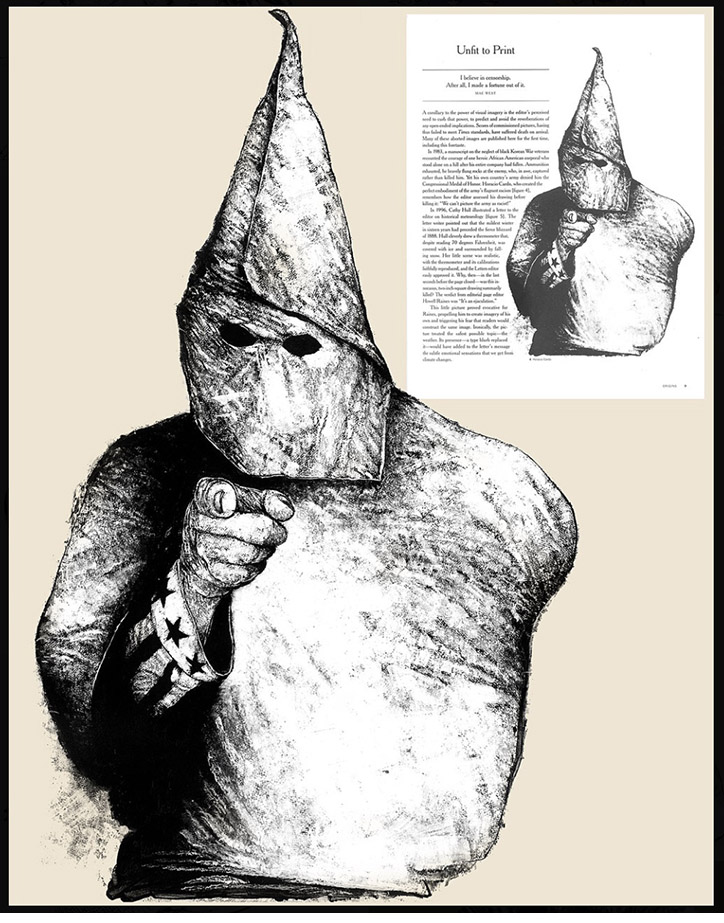
Many of us were jealous not only of Cardo's talent, but also of his dream deal with Argentia's biggest newspaper Clarín, a long-running contract that afforded him extraordinary freedom, both artistic and economic. No one deserved it more. Here's Clarín's tribute along with some of the work he did for that and other publications.
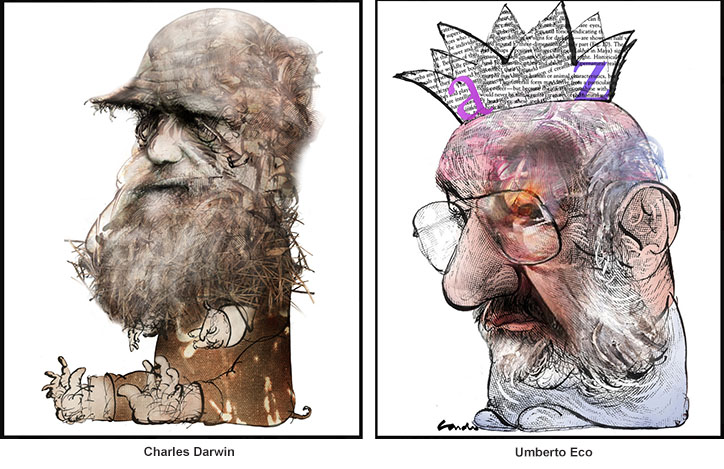
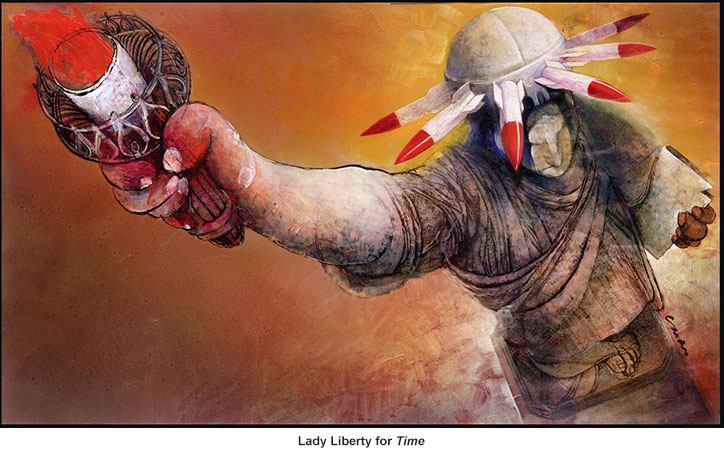
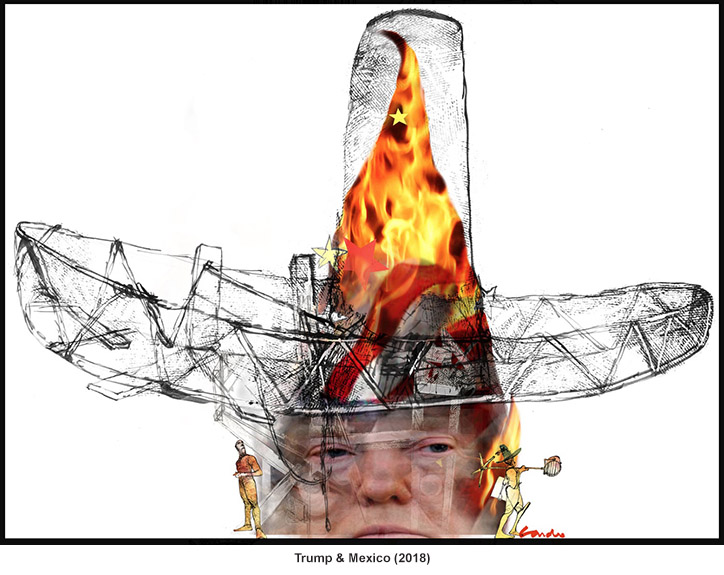
Cardo also published several books, including one for children on a subject he loved and another for adults on one he loathed.
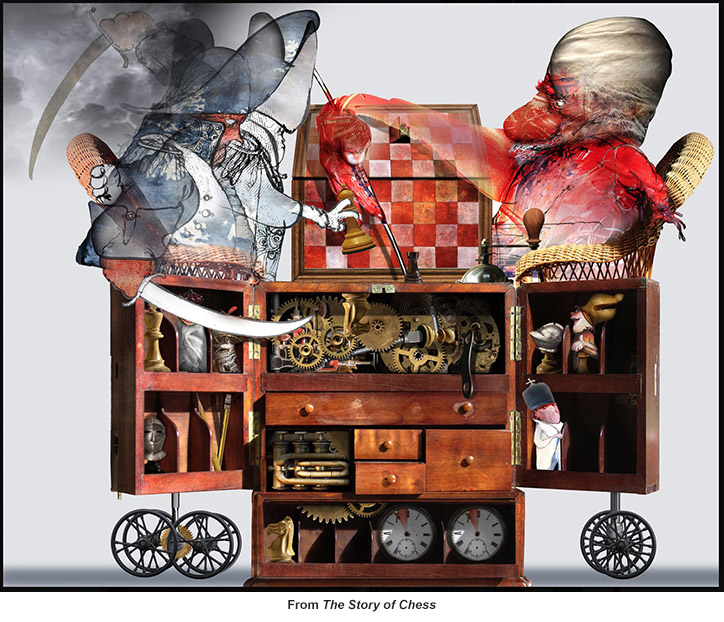
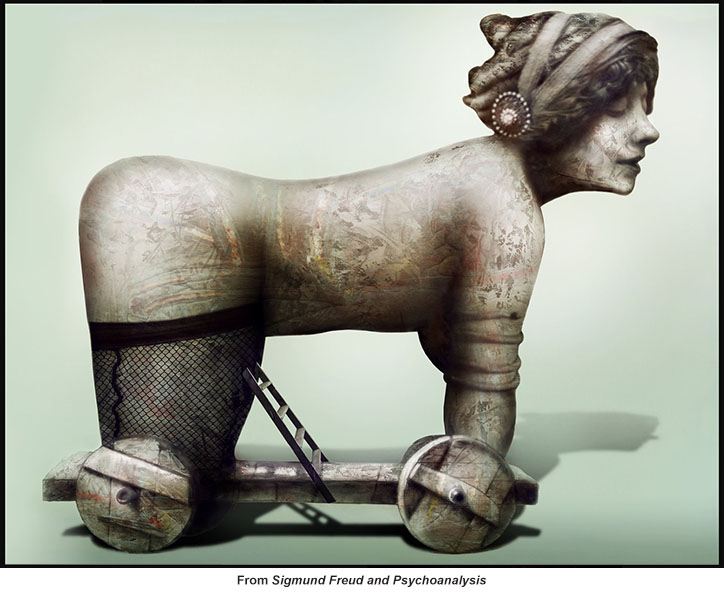
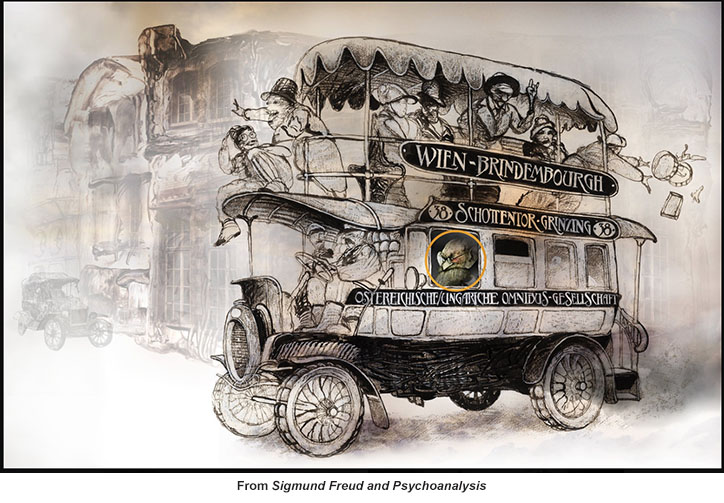
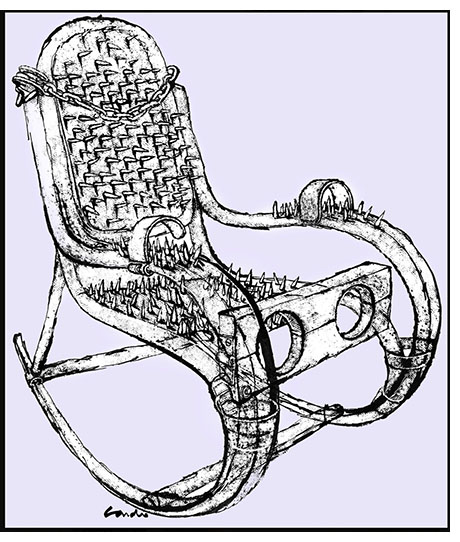 The Story of Chess is available from Amazon.com. The Freud book is currently unavailable in the U.S.
The Story of Chess is available from Amazon.com. The Freud book is currently unavailable in the U.S.
This drawing of a horrific rocking chair that Inx ran as a commentary on capital punishment and the elderly was entitled Retirement by Horacio himself. The last email I received from him was dated October 18, 2018 and was an invitation to visit his newly-redesigned website horaciocardo.com where I found the spiky seat. He died on October 22, 2018.
He was spared the indignities of retirement and decrepitude, while we were burdened with the loss of an irreplaceable artistic spirit.
On October 30, the New York Times published a respectful and appropriate obituary. Please read it for more details of his rich life and seek out as many examples of his work as you can find.
Martin Kozlowski
11/03/18
All the artwork included here is subject to copyright.


